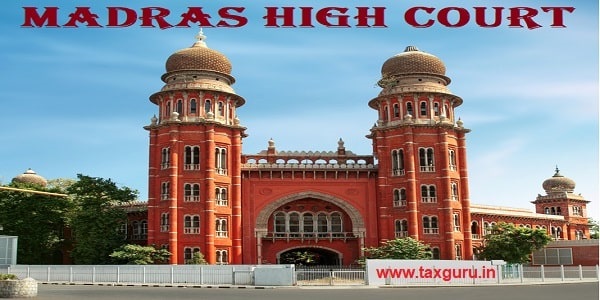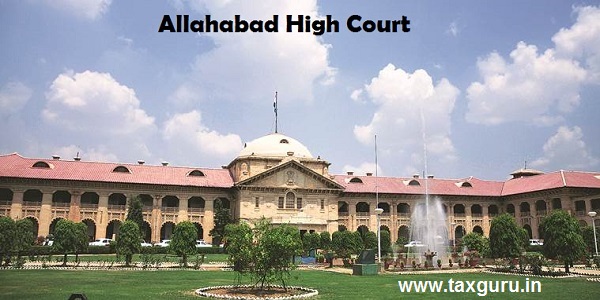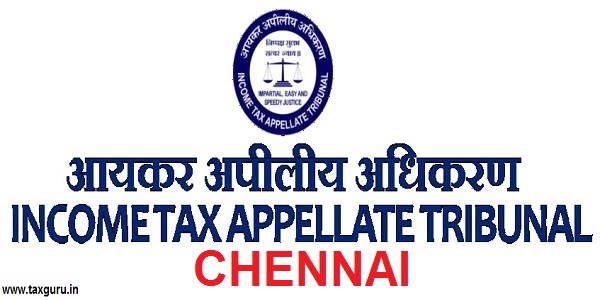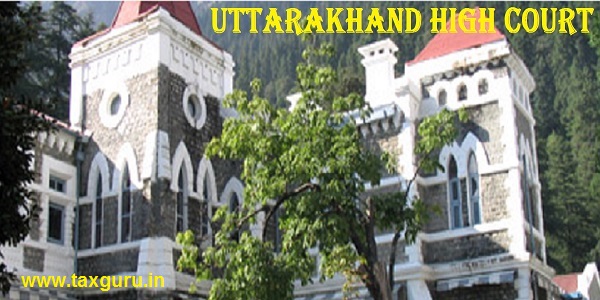Case Law Details
Kalsha Builders Pvt Ltd Vs ACIT & Ors. (Bombay High Court)
Subsequent Inquiry Based On Additional Material is Sustainable In Law And Requirement Of True And Full Disclosure Runs Through The Entire Assessment And Doesn’t End With Filing Of Return.
FACTS –
Assessee, a registered company, is engaged in the business of developing real estate. Return for AY 2011-12 was taken up for scrutiny. AO passed the order u/s 143 (3) on 29.01.2014. AO issued notice to reopen the assessment.
Search action was carried out against Shri Shirish who was engaged in providing bogus accommodation entries like LICG, share capital with huge share premium, turnover, loan etc. M/s. Prabhav, entity controlled by Shri Shirish, made investment of INR 3 Crore to the assessee. AO contended that M/s. Prabhav is engaged in accommodation entries and investment made is unexplained cash credit and hence AO has reason to believe that income chargeable to tax amounting to INR 3 Crore has escaped assessment AY 2011-12.
HELD –
Merely because the Assessing Officer had examined the transactions during the original assessment proceedings, would not preclude him from subsequent inquiry it is shown on the strength of additional material establishing prime facie that the disclosures made by the assessee were not true.
If the entire claim is bogus and so established to be, the assessee would fail the test of true and full disclosure.
Requirement of true and full disclosure runs through the entire assessment and it does not end on filing of return.
Mere non-recitation of allegation would not invalidate the reasons or the fact that the reasons are based on allegation of lack of true and full particulars.
FULL TEXT OF THE HIGH COURT ORDER / JUDGEMENT
1. Petitioner has challenged a notice of reopening of assessment dated 28th/29th March, 2 seeking to reopen the petitioner’s assessment for the assessment year 2011-12.
2. Brief facts are as under:
2.1 Petitioner is a company registered under the Companies Act and engaged in the business of developing real estate. For the assessment year 2011-12, the petitioner had filed return of income which was taken in scrutiny by the Assessing Officer. The Assessing Officer passed order under Section 143(3) of the Income Tax Act, 1961 (“the Act” for short) on 29.1.2014. To reopen such assessment, the Assessing Officer issued the impugned notice. In order to do so, he had recorded following reasons:
“Reasons for reopening of the assessment in case of M/s. Kalsha Builders Pvt. Ltd. for A.Y. 2011-12 u/s 147 of the Act.
In this case the Assessee filled return of Income on 27.09.2011 declaring total income of Rs. 10,05,830/-/- The said return was processed u/s 143(1) on 7.1.2012 determining Total Income of Rs.10,05,830/- and Order Passed u/S 143(3) on 20.01.2014 determining Total Income of Rs. 3,14,72,770/-.
2. A search action u/S. 132 of the Income Tax Act, 1961 was carried out at the residence and various premises of Shri. Shirish C. Shah who happened to be main person engaged in providing bogus accommodation entries like LICG, Share capital with huge share premium, turnover, Loan etc;
3. On verification of the impounded material, it is seen that M/s. Prabhav Industries Ltd., en entity controlled by Shirish C. Shah, has made investment of Rs. 3,00,00,000/- to the above mentioned assessee.
4. In order to overcome borrowed satisfaction notice u/S. 133(6) was issued to M/s. Prabhav Industries Ltd requiring it to provide various details. However, till date no reply has been received.
5. Thus, as M/s. Prabhav Industries Ltd., is engaged in providing accommodation entries, investment made in the above said assessee is nothing but unexplained cash credit.
6. In view of the above facts, I have reason to believe that income chargeable to tax amounting to Rs. 3,00,00,000/- has escaped assessment for A.Y. 2011-12 in view of the provisions of Section 147 of the Income Tax Act.”
2.2 Upon being supplied the reasons, the petitioner raised objections to the notice of reopening of assessment under letter dated 16.5.2018. Such objections were rejected by the Assessing Officer by an order dated 14.9.2018, hence, this petition.
3. Taking us through the reasons recorded by the Assessing Officer, learned counsel for the petitioner raised following contentions:-
i. The reasons do not demonstrate any live link between the material available with the Assessing Officer and his formation of belief that the income chargeable to tax had escaped assessment;
ii. The entire issue on which reopening of assessment is sought, was minutely examined by the Assessing Officer during the scrutiny assessment. The impugned notice, is thus, based on change of opinion;
iii. There was no failure on the part of the assessee to disclose truly and fully all material facts. The reasons also do not suggest any such failure.
4. On the other hand, learned counsel Mr. Suresh Kumar for the Department submitted that the Assessing Officer had recorded proper reasons for issuing such notice. After the assessment was completed, the Assessing Officer received information prima facie suggesting that the petitioner had not made true disclosures. He had also issued inquiry notice under Section 133(6) of the Act to the concerned parties. On the basis of such materials, he formed an independent belief that the income chargeable to tax had escaped assessment. It is a writ large on the face of the reasons that there was failure on the part of the assessee to disclose truly and fully all material facts. Merely because the Assessing Officer in the reasons has not repeated such words, would not be fatal to the notice.
5. Having heard the learned counsel for the parties and having perused the material on record, we find that in the reasons, the Assessing Officer has referred to a search action under Section 132 of the Act carried out at the residence and various premises of one Shirish C. Shah who was found to be engaged in providing bogus accommodation entries such as capital gain, share capital with huge share premium etc. Such material showed that one M/s. Prabhav Industries who was an entity controlled by Shirish C. Shah had made investment of Rs. 3 crore in the assessee company. The Assessing Officer also recorded in such reasons that he had issued notice under Section 133(6) of the Act to said Prabhav Industries asking for various details. Such notice remained unreplied. On such basis, the Assessing Officer formed a belief that M/s. Prabhav Industries was engaged in providing accommodation entires and that the investment made by the said Prabahv Industries in the assessee was in the nature of assessee’s unexplained cash credit.
6. It is true that during the scrutiny assessment, this issue had come up for consideration before the Assessing Officer. He had raised multiple queries under a letter dated 17.7.2013 asking inter alia for furnishing details of assessee’s share capital, increase in the assessee’s share capital and share premium account. The assessee had replied to such queries. After which further queries came to be raised by the Assessing Officer on 20.8.2013 in which there was specific mention of the details of a sum of Rs. 3 crore having been paid by M/s. Prabahv Industries for purchase of 1500 shares. The assessee was asked to provide the identity of such investor, its creditworthiness and genuineness of the transaction. The assessee having replied to such queries raised in the order of assessment, the assessee made no additions.
7. It is because of this, the assessee contended that the Assessing Officer is precluded from raising same question all over again by way of reassessment. The impugned notice having been issued beyond the period of four years from the end of relevant assessment year, the question of true and full disclosure by the assessee would also be an additional factor. However, when the Revenue suggests that the assessee had indulged in the bogus accommodation entries and therefore, said amount of Rs. 3 crore was nothing but the assessee’s unexplained cash credit, the issue of change of opinion and true and full disclosure would merge almost to the extent of overlapping. In other words, if the Revenue can prima facie show on the basis of additional material available with the Assessing Officer after completing the scrutiny assessment that the assessee had made a bogus claim, merely because the issue was examined by the Assessing Officer, would not preclude him from reopening the assessment. Reference in this context can be made to the decision of the Supreme Court in the case of M/s. Phool Chand Bajrang Lal & Anr. Vs. I.T.O.1. It is a case in which during the original scrutiny assessment, the question of transaction of loan given by the assessee was examined. Later on, however, the Assessing Officer received information suggesting that the entire transaction was bogus. When the question of validity of reopening of assessment came up for consideration before the Supreme Court, it was observed as under:-
“25. From a combined review of the judgments of this Court, it follows that an Income-tax Officer acquires jurisdiction to reopen assessment under Section 147(a) read with Section 148 of the Income Tax Act, 1961 only if on the basis of specific, reliable and relevant information coming to his possession subsequently, he has reasons which he must record, to believe that by reason of omission or failure on the part of the assessee to make a true and full disclosure of all material facts necessary for his assessment during the concluded assessment proceedings, any part of his income, profit or gains chargeable to income tax has escaped assessment. He may start reassessment proceedings either because some fresh facts come to light which where not previously disclosed or some information with regard to the facts previously disclosed comes into his possession which tends to expose the untruthfulness of those facts. In such situations, it is not a case of mere change of opinion or the drawing of a different inference from the same facts as were earlier available but acting on fresh information. Since, the belief is that of the Income-tax Officer, the sufficiency of reasons for forming the belief, is not for the Court to judge but it is open to an assessee to establish that there in fact existed no belief or that the belief was not at all a bona fide one or was based on vague, irrelevant and non-specific information. To that limited extent, the Court may look into the conclusion arrived at by the Income Tax Officer and examine whether there was any material available on the record from which the requisite belief could be formed by the Income Tax Officer and further whether that material had any rational connection or a live link for the formation of the requisite belief. It would be immaterial whether the Income-tax Officer at the time of making the original assessment could or, could not have found by further enquiry or investigation, whether the transaction was genuine or not, if one the basis of subsequent information, the Income-tax Officer arrives at a conclusion, after satisfying the twin conditions prescribed in Section 147(a) of the Act, that the assessee had not made a full and true disclosure of the material facts at the time of original assessment and therefore income chargeable to tax had escaped assessment. The High Courts which have interpreted Burlop Dealer’s case (Supra) as laying down law to the contrary fell in error and did not appreciate the import of that judgment correctly.
26. We are not persuaded to accept the argument of Mr. Sharma that the question regarding truthfulness or falsehood of the transactions reflected in the return can only be examined during the original assessment proceedings and not at any stage subsequent thereto. The argument is too broad and general in nature and does violence to the plain phraseology of Sections 147(a) and 148 of the Act and is against the settled law by this Court. We have to look to the purpose and intent of the provisions. One of the purposes of Section 147, appears to us to be, to ensure that a party cannot get away by wilfully making a false or untrue statement at the time of original assessment and when that falsity comes to notice, to turn around and say “you accepted my lie, now your hands are tied and you can do nothing”. It would be travesty of justice to allow the assessee that latitude.
27. In our opinion, therefore, in the facts of the present case the Income-tax Officer Azamgarh rightly initiated the reassessment proceedings on the basis of subsequent information, which was specific, relevant and reliable, and after recording the reasons for formation of his own belief that in the original assessment proceedings, the assessee had not disclosed the material facts truly and fully and therefore income chargeable to tax had escaped assessment. He, therefore, correctly invoked the provisions of Sections 147(a) and 148 of the Act. The High Court was, thus, perfectly justified in dismissing the writ petition. There is no merit in this appeal which fails and is dismissed but with no order as to costs”
8. In this background, we may take stock of the reasons recorded by the Assessing Officer. After the assessment was completed, the Assessing Officer was supplied information collected through search action at the residence and other premises of Shirish C. Shah who was found to be the main person engaged in providing bogus accommodation entires. The material impounded during the search suggested that Prabhav Industries was entirely controlled by Shirish C. Shah which had made investment of Rs. 3 crore in assessee company. The notice issued by the Assessing Officer to Prabhav Industries under Section 133(6) remained unanswered. It was on the basis of such material, the Assessing Officer formed a belief that the said sum of Rs. 3 crore was nothing but the re-rooting of assessee’s unexplained cash.
9. In facts of the present case, we do not find merits in any of the contentions of the petitioner. Firstly, as noted, merely because the Assessing Officer had examined the transactions during the original assessment proceedings, would not preclude him from subsequent inquiry it is shown on the strength of additional material establishing prime facie that the disclosures made by the assessee were not true. If the entire claim is bogus and so established to be, the assessee would fail the test of true and full disclosure. Requirement of true and full disclosure runs through the entire assessment and it does not end on filing of return. The search action against Shirish C, Shah provided certain information which was also processed by the Assessing Officer before forming the belief that income chargeable to tax had escaped assessment.
10. Secondly, the entire reasons when read as a whole, more than sufficiently demonstrate the belief of the Assessing Officer that the entire assessment goes on bogus claim of share application money having been received by the assessee company. Therefore, lack of true disclosures is writ large on the face of the reasons. Mere non recitation of such expression would not invalidate the reasons or the fact that the reasons are based on allegations of lack of true and full particulars.
11. Learned counsel for the petitioner submitted that the Assessing Officer had issued notice to Prabhav Industries under Section 133(6) of the Act which was replied and had not remained unreplied as suggested in the reasons. Firstly, this aspect has emerged in the rejoinder. Secondly, at this stage, in a writ jurisdiction, we would not entertain such disputed question since it is well settled that sufficiency of the reasons at the end of the Assessing Officer to form a belief that the income chargeable to tax had escaped assessment would not be within the purview of examination of writ court at this stage.
12. For the above reasons, the petition is dismissed. Interim relief stands vacated.
Note:
1 (1993) 4 SCC 77



























